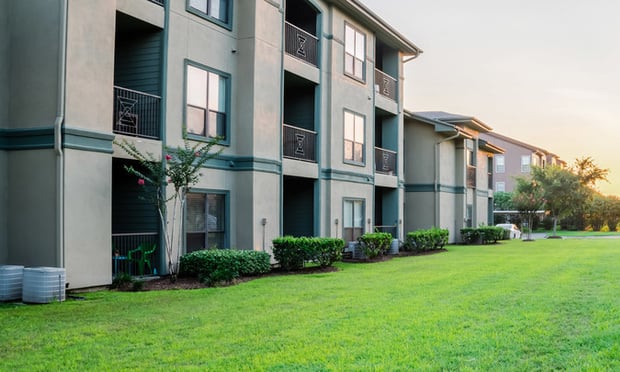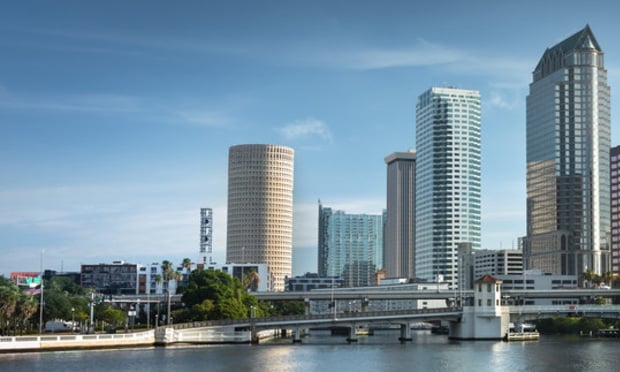"There's a huge pent-up demand because industrial real estate matches up so well from an actuarial standpoint," says Jack Fraker, vice chairman of CB Richard Ellis' top-ranked investment sales group. "That return and the compounded effect is what chief investment officers are looking for."
According to CBRE's first quarter analysis, the average per sf price in Dallas/Fort Worth rose slightly despite a slight slowdown on the Q1 closing front. The region is averaging $67 per sf or $6 per sf below the national average."The first quarter was incredibly slow. Everyone's adjusting to what's going on," acknowledges Cary Krier, senior vice president of industrial sales for Jones Lang LaSalle in Dallas. "But, industrial certainly is a preferred asset type. Lots of people don't think there's as much risk associated with industrial."
Fraker says his team's pipeline for the next 60 days has closings lined up for $1.1 billion of portfolio and one-off sales, totaling 18.7 million sf all across the US. "That validates the capital markets are open for business in primary markets of the country, like Dallas, for quality real estate," he tells GlobeSt.com.
Last year, Fraker's team bed down $5.1 billion in 45 deals in the US, selling 67.1 million sf. Of that, 12 million sf was in Dallas/Fort Worth, with the year's top sale coming in November 2007: $102 million for the 1.3-million-sf Heritage Business Park in Grapevine. "The macro economy might be hurting, but overall people are very bullish on the Dallas market in general," says CBRE vice president Josh McArtor, who along with associate Conor Feeney and financial analyst Heather McClain round out Fraker's team.
[IMGCAP(2)]Although 2007 was a record-breaking year for several sales teams, neither Fraker nor Krier see 2008 as panning out the same way, but both do believe it will be a solid-performing year. "There are fewer bidders than a year ago, but you only need one," Krier says. "People aren't going to sit on the sidelines forever."
Fraker says his team's pending deals have drawn about 10 offers each. There has been, though, a change in strategy from marketing blitzes to invitation-only scenarios in an attempt to weed out buyers who historically have relied on "financial engineering," he says. "We know who the most active investors are and who truly have the cash."
The other market change is owners of class B minus and class C properties are being advised by Fraker that "now is not a good time to go to the market." The same is true for out-of-the-way locations. "If you have to use your Rand McNally to find it, those kinds of assignments have been hard to execute," Fraker says.
Portfolios remain in high demand despite the sticker price for buying in bulk. Krier cites a $120-million sale of an estimated three-million-sf portfolio of a US vehicle manufacturer's space scattered across the US as a prime example. "We thought they would be split up and they're going to sell as a portfolio," he says.Fraker's team has four class A portfolios scheduled to close in May and one in June. The exchanges will draw about $450 million for nearly 4.8 million sf from institutional circles, the team estimates.
[IMGCAP(3)]In Dallas, Denver-based DCT Industrial Trust is poised to pass the 480,000-sf Pinnacle C at 4038 Rock Quarry Rd. in Pinnacle Park and a 643,429-sf, two-building package along Corporate Drive. The fully leased trio is "under contract to prominent institutional investors," Fraker says.
Also in Dallas, Principal Financial Group of Des Moines has a May closing penciled for 705,209 sf, all class A warehouses in Valwood. The portfolio is sporting 83% occupancy.
If the May plans stick, Switzerland-based UBS will be turning over 706,132 sf in 11 buildings in Addison and Carrollton business parks. The 78%-leased portfolio, though, stacks up as a classic redevelopment play, according to Fraker. The deal includes a 5.4-acre hard corner at Marsh Lane and Beltline Road in North Dallas.
Coming in June is a 2.38-million-sf class A portfolio of six single-tenant and two multi-tenant buildings in Texas, Indiana, Tennessee, California, Minnesota and Maryland. Toronto-based Agellan Capital Partners Inc.'s portfolio also is a fully leased class A real estate.
Fraker says pension funds, in particular, are investing in industrial real estate as a cushion for the days when Baby Boomers retire en masse. Last year, they deployed $50 billion; this year, it's going to be $80 billion. "That can't be risked in the stock market. It has to be in safe reliable hard assets," Fraker concludes. "Real estate is a hard asset that provides predictable cash return each year and matches up to the Baby Boomers."
Want to continue reading?
Become a Free ALM Digital Reader.
Once you are an ALM Digital Member, you’ll receive:
- Breaking commercial real estate news and analysis, on-site and via our newsletters and custom alerts
- Educational webcasts, white papers, and ebooks from industry thought leaders
- Critical coverage of the property casualty insurance and financial advisory markets on our other ALM sites, PropertyCasualty360 and ThinkAdvisor
Already have an account? Sign In Now
*May exclude premium content© 2024 ALM Global, LLC, All Rights Reserved. Request academic re-use from www.copyright.com. All other uses, submit a request to [email protected]. For more information visit Asset & Logo Licensing.








